ASEAN
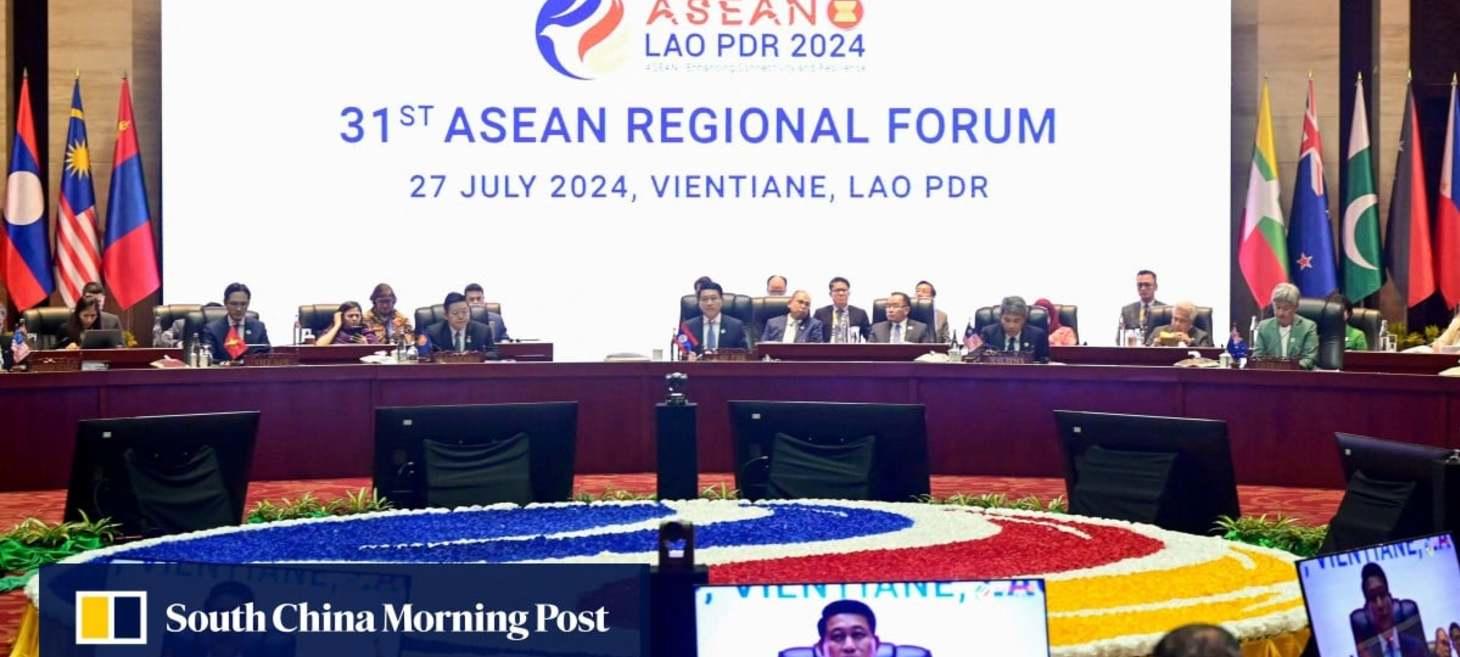
Asean condemns Myanmar violence, urges peaceful means to settle sea disputes - South China Morning Post
During a three-day regional summit in Laos, Southeast Asian top diplomats condemned the ongoing violence in Myanmar's civil war and called for practical measures to ease tensions in the South China Sea. The talks, involving allies such as the United States, Russia, and China, were dominated by discussions on Myanmar's escalating conflict and maritime disputes with China. ASEAN, chaired by Laos, emphasized the urgent need to address Myanmar's humanitarian crisis and urged all parties to halt violence and ensure safe delivery of aid. Despite ASEAN's "five-point consensus" peace plan, Myanmar's military has ignored the proposals, raising doubts about the bloc's effectiveness. The summit also highlighted regional rivalries, with US and Chinese officials holding separate meetings. ASEAN reiterated its stance on freedom of navigation in the South China Sea and welcomed measures to reduce tensions, referencing a recent agreement between the Philippines and China. The US praised the agreement, while China warned against the deployment of US missiles in the Philippines, citing regional security concerns.
Census & Elections
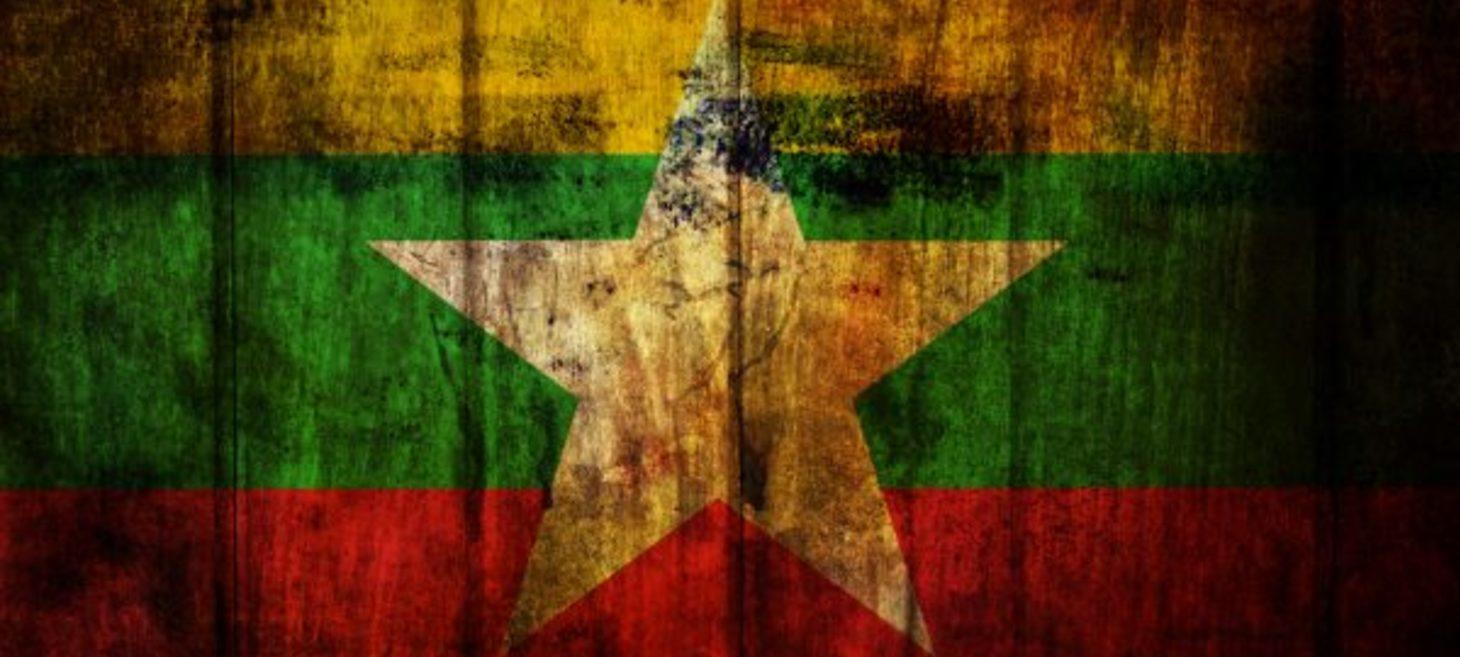
In Myanmar, An Impossible Election Is in China’s Interests
China has facilitated diplomatic talks with Myanmar's junta leaders as their six-month state of emergency nears its end, amid speculation of impending elections. High-profile visits included former President Thein Sein and military leader Soe Win, followed by pro-junta political parties visiting China at the Chinese Communist Party's invitation. China is reportedly pressuring the junta to hold elections, initially promised after the 2021 coup. However, the military struggles with territorial control, facing potential attacks on Mandalay by ethnic armed organizations (EAOs) and anti-regime militias. Despite controlling much of the country, the EAOs, PDFs, and the shadow National Unity Government (NUG) are excluded from election plans. ASEAN's attempts at peace negotiations have faltered, and the new U.N. Special Envoy to Myanmar has been notably silent. China, needing to protect its oil and gas pipelines, has engaged with the Three Brotherhood Alliance and other EAOs. The NUG has a 10-point policy to safeguard Chinese interests but will not participate in elections. The junta's logistical incapacity makes a credible national vote unlikely, yet China pushes for elections in military-controlled areas, potentially leading to a "Chinese election" that could stabilize the junta and secure China's strategic interests in Myanmar.
Conflict
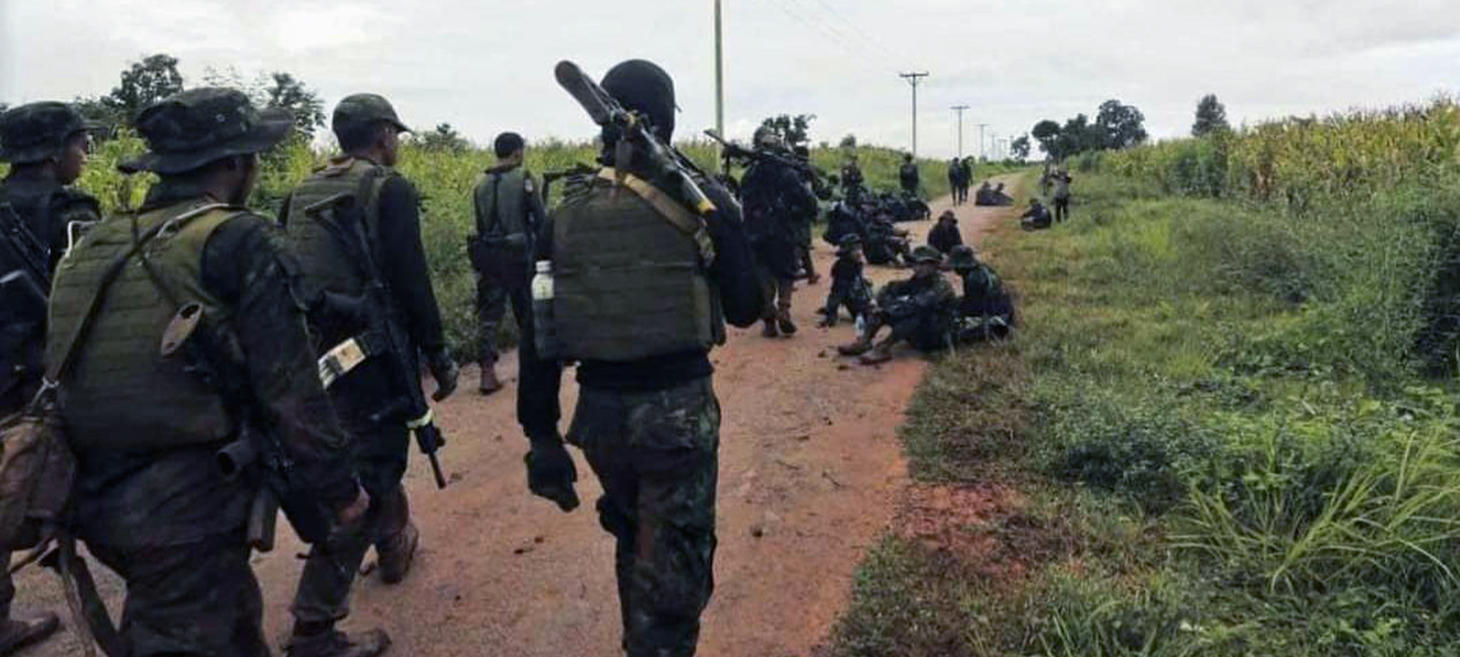
Anti-Regime Groups Seize Myanmar Junta Positions in Southern Shan State
Anti-regime groups, including the People’s Defense Forces (PDFs) from Inle and Pekon and the Karenni Nationalities Defence Force, launched an offensive against Myanmar's regime and the allied Pa’O National Organization (PNO) in Nyaung Shwe Township, southern Shan State, capturing junta outposts at the tourist hotspot of Inle Lake since July 18. This strategic move targeted both junta and PNO positions in rural areas, leading to significant territorial gains such as a PNO base and military checkpoints. The clashes, occurring approximately 32km from Nyaung Shwe town, have displaced around 5,000 people from five villages, including about 1,700 individuals from Karenni State seeking refuge in nearby towns due to the escalating violence. Amidst ongoing military tensions and attempts by the regime to retake lost territories, anti-regime forces have effectively surrounded a junta hilltop base and engaged in further confrontations, highlighting the intensifying conflict in the region.
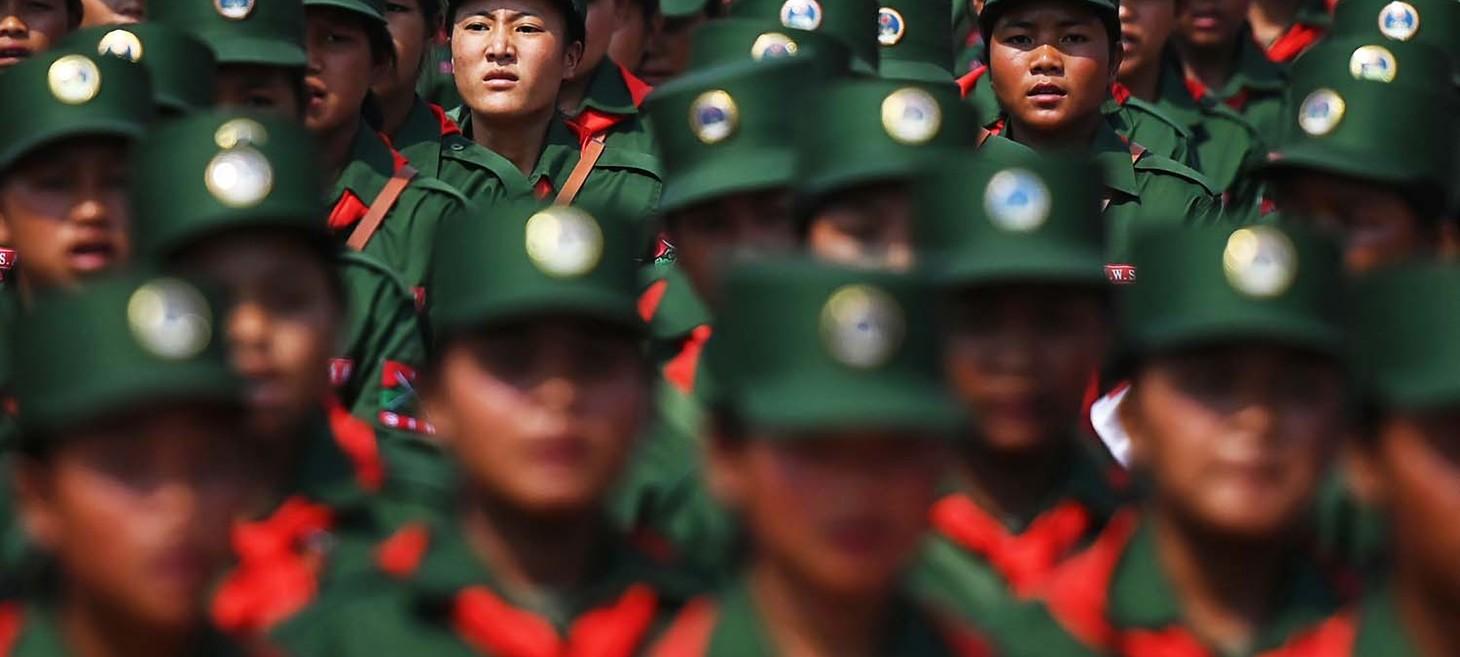
United Wa State Army moves into strategic town in northern Shan State
The United Wa State Army (UWSA), Myanmar's most powerful ethnic armed group, has moved into Lashio, a strategic town in northern Shan State, amidst ongoing conflict between the military junta and other ethnic armed groups. This move comes after weeks of fighting over Lashio, which escalated this month with the Three Brotherhood Alliance renewing its offensive against the military. Despite claims by the Myanmar National Democratic Alliance Army (MNDAA) of capturing Lashio and the military's North Eastern Command, the UWSA's entry into the town aims to "protect" its properties there, indicating a complex and shifting dynamic among the various factions involved in the conflict. The UWSA, known for its significant manpower and close ties with China, has largely remained neutral since the 2021 coup but its involvement in Lashio highlights the fluidity of alliances and the strategic importance of the region.
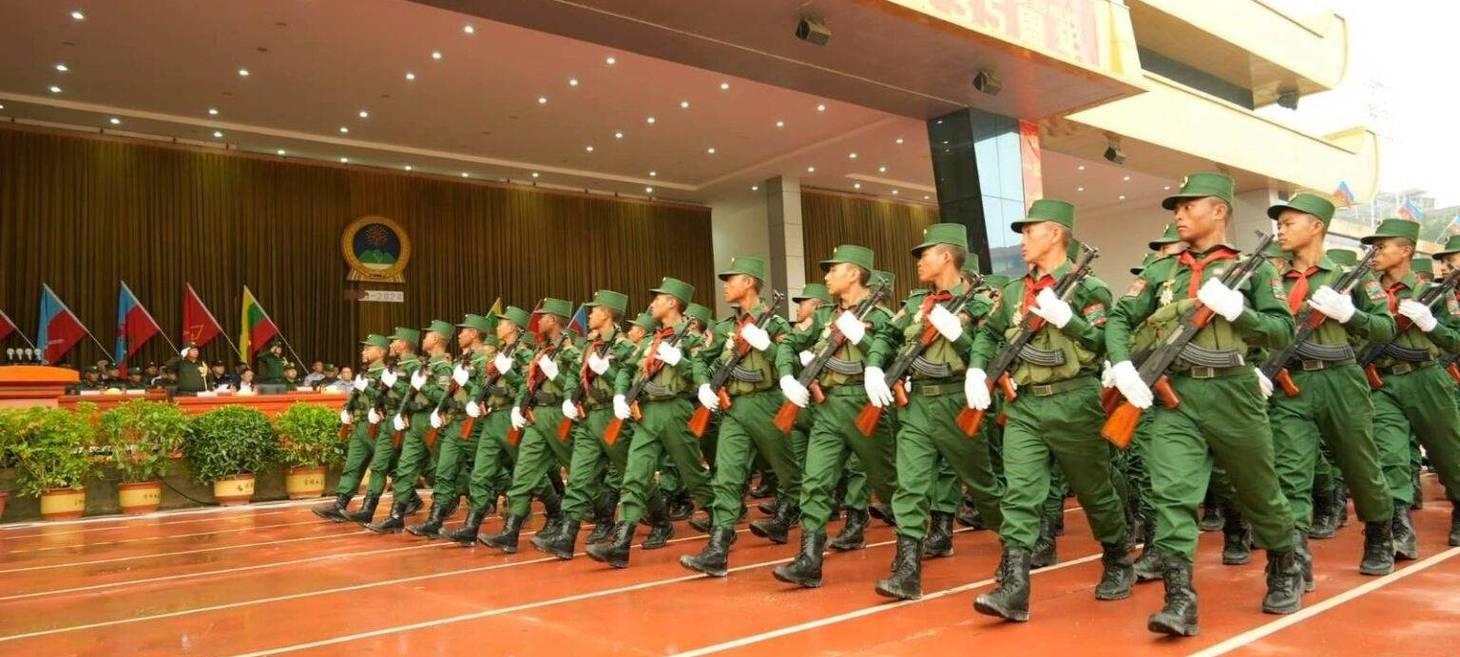
Wa Armed Organization UWSA Deploys in Lashio, Citing Protection of External Relations Office and Interests
The United Wa State Army (UWSA) has strategically deployed its forces into Lashio Town, northeastern Shan State, to protect its interests, including the Wa External Relations Office, amidst escalating conflicts between the junta and the Myanmar National Democratic Alliance Army (MNDAA) over territorial control. Confirming the deployment on July 27, UWSA's External Relations Officer, U Nyi Rang, highlighted the peaceful entry of UWSA troops to safeguard their assets, emphasizing neutrality in the ongoing conflict and a commitment to peace. This move, coordinated with both conflicting parties, ensures the safety of the Wa External Relations Office near key landmarks like the Lashio Police Station and University. The UWSA's involvement follows the MNDAA's claim of administrative takeover in Lashio. It precedes a prior troop movement across the Thanlwin River, indicating a complex interplay of forces in the region. Despite the MNDAA's assertion of control, pockets of junta resistance persist, underscoring the potential for continued unrest. This engagement marks UWSA's second involvement in 'Operation 1027,' led by the Three Brotherhood Alliance. It aligns with their role in the Federal Political Negotiation and Consultative Committee, signaling a multifaceted approach to securing peace and stability in the volatile region, amidst ongoing clashes and strategic positioning by various armed groups.
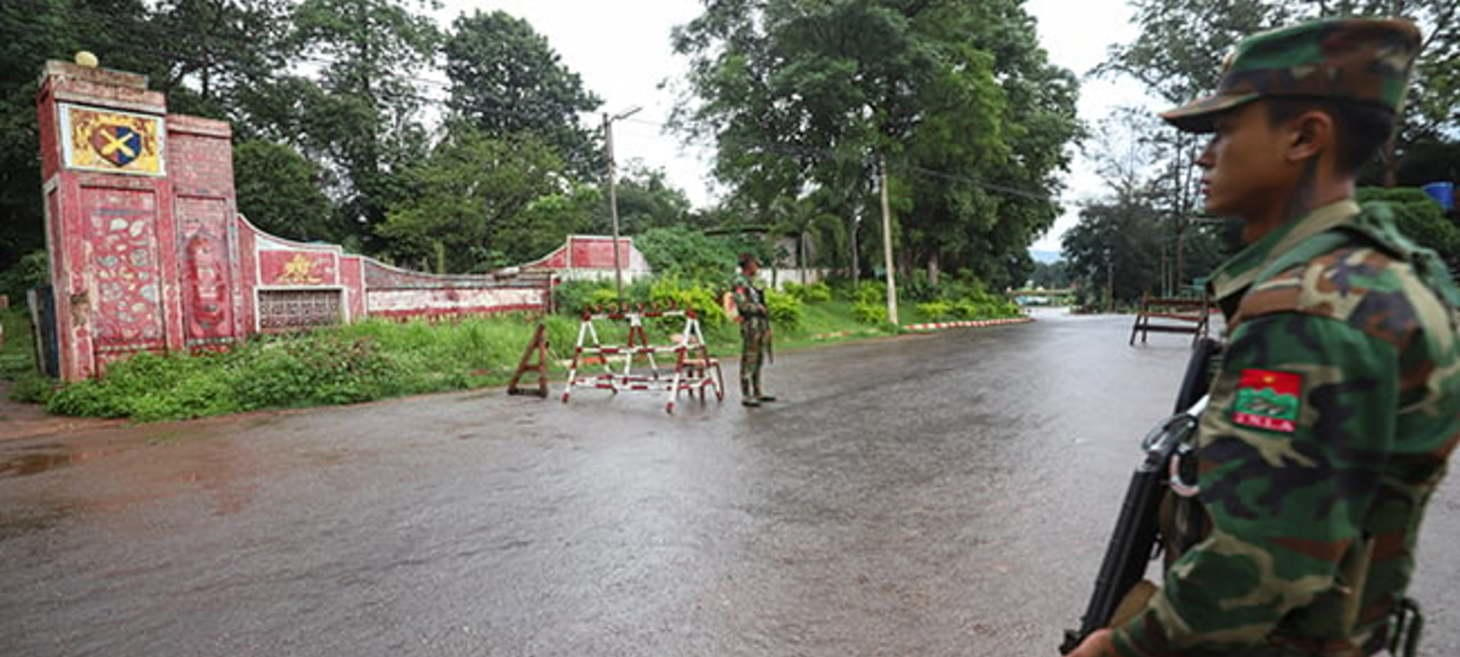
More than 300 Myanmar junta reinforcements ‘annihilated’ in attempt to recapture Kyaukme, Shan State
In a significant clash on July 24, the Ta'ang National Liberation Army (TNLA) successfully repelled an attempt by over 300 Myanmar junta reinforcements to retake Kyaukme town, resulting in the annihilation of the junta forces. The reinforcements, which included 30 vehicles and more than 300 troops, were intercepted and attacked en route from Yatsauk town in southern Shan State. Local sources reported that TNLA fighters completely wiped out the junta forces stationed at key locations in Kyaukme, with over 50 bodies cleared and 40 soldiers captured, marking a decisive victory for the TNLA. The battle, which took place at Natsalintaung monastery and the Asia World toll gate, saw the TNLA seize a variety of weapons and military items from the junta. Following the conflict, Kyaukme town returned to normalcy, with the morning market reopening and residents resuming their activities as the TNLA took control of urban administration, indicating a shift in the dynamics of control in the region. This victory against the junta's Light Infantry Division and associated battalions underscores the ongoing resistance and the strategic importance of Kyaukme, highlighting the TNLA's capability to defend against military incursions and maintain control over the area despite the junta's efforts to regain territory.
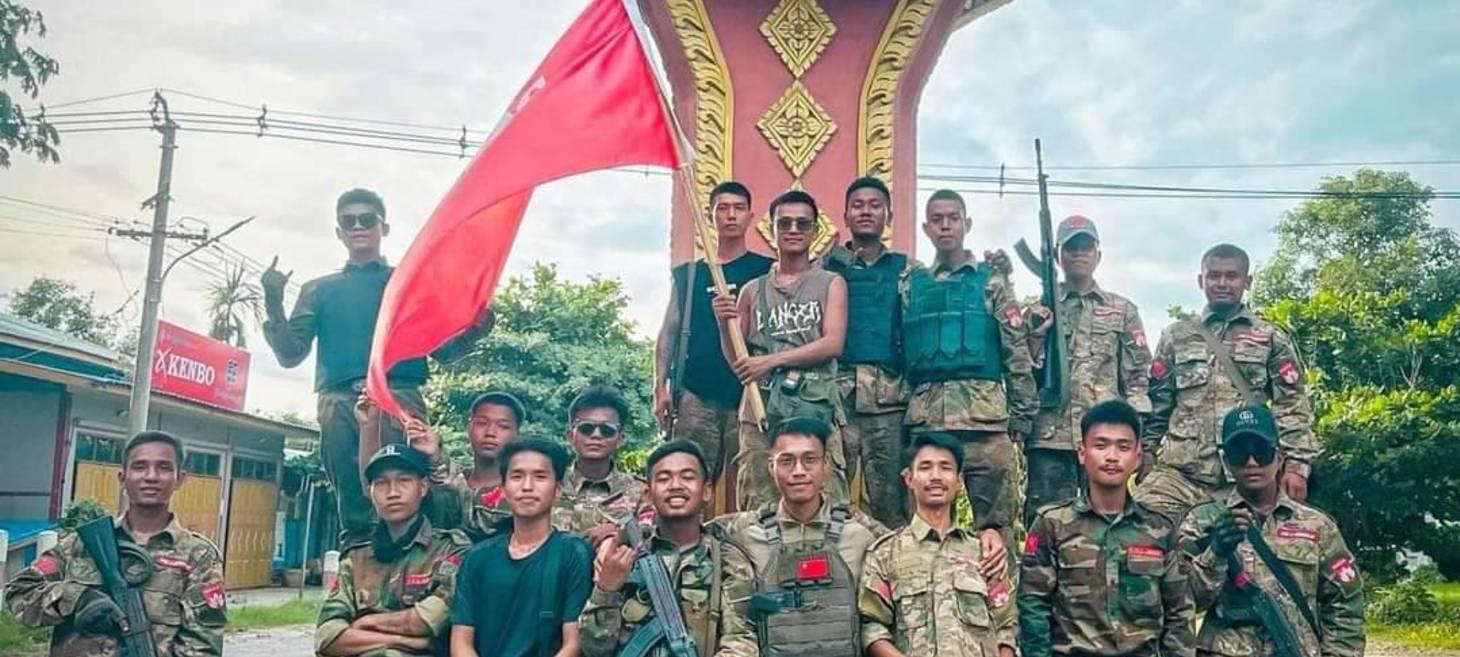
PDFs capture last junta camp in Singu Township after intense naval offensive
On July 25, the People's Defense Forces (PDFs) in Myanmar achieved a significant victory by capturing the Ywar Thar Yar Junta camp, the final junta stronghold in Singu Township, Mandalay Region, through a daring three-hour naval assault amidst rising river levels. This strategic camp, located centrally in the Ayeyarwady River and heavily fortified, was taken after a meticulously planned attack involving boats and drones, despite the challenging conditions. The operation, which began around 2:00 am and concluded by 5:00 am, resulted in the death of two PDF members and numerous junta troops, with key junta and militia leaders fleeing the scene. Over 60 to 70 resisting junta soldiers were killed, and only a few managed to escape across the river. This success followed the PDF's earlier capture of Singu Town on July 17, marking the liberation of Singu Township from junta control. The victory at Ywar Thar Yar camp, involving the Singu People's Defense Force and No. 512 PDF Battalion, not only eliminated a significant threat to civilians from indiscriminate heavy weapon fire but also showcased the PDFs' growing capabilities in complex military operations, highlighting their ability to overcome geographical and tactical challenges to secure the area, further consolidating their control in the region.
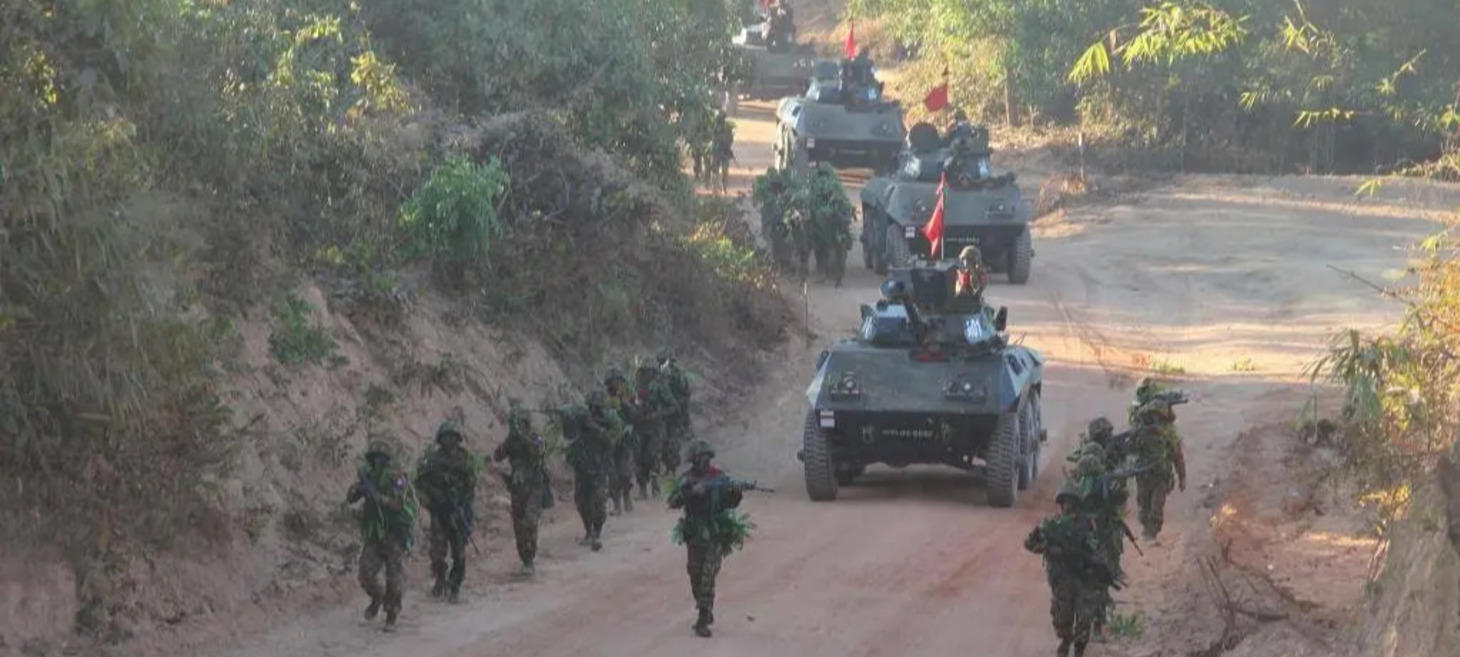
Junta Intensifies Military Operations in Southern Myanmar Amid Setbacks in Northern Regions
In response to a series of defeats in northern Myanmar and the loss of control over several towns, the coup junta has escalated military operations in Kyaikto and Ye townships in Mon State, leading to renewed and intensified conflicts with the Karen National Liberation Army (KNLA) and the People's Defense Force (PDF). This escalation has seen the junta forces engage in frequent clashes and indiscriminate shelling of civilian areas, resulting in significant civilian casualties, with 16 killed and over 30 injured in Kyaikto alone. The junta's strategy includes deploying newly recruited conscripts for area clearance operations, particularly under the No. 19 Military Operations Command (MOC-19), indicating a systematic approach to regain control. Local resistance forces, anticipating increased military activities, have prepared to counter these operations. The situation has heightened tensions and fear among local residents, prompting preparations for potential airstrikes and evacuations. The ongoing conflict underscores the persistent instability and violence in southern Myanmar as both sides brace for further confrontations, with local communities caught in the crossfire.
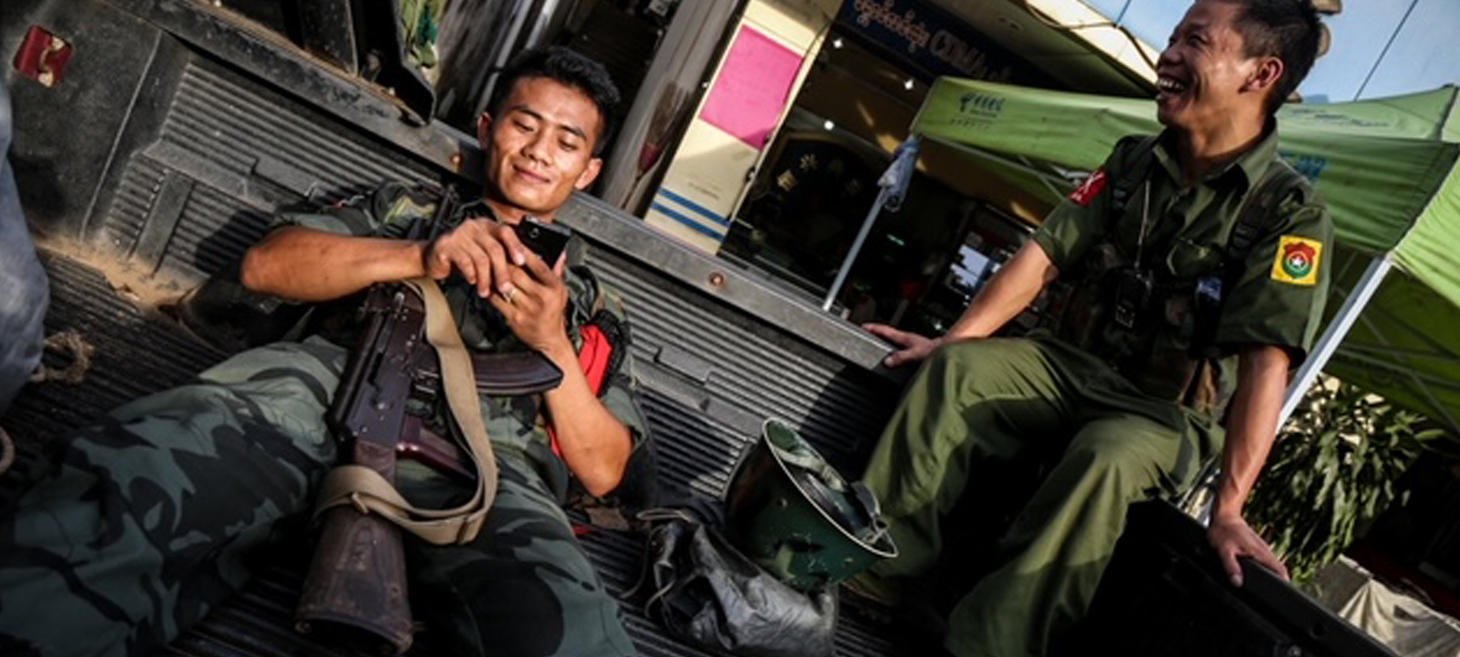
KIA: 200 Myanmar Junta Positions Siezed in Four Months
The Kachin Independence Army (KIA) and its allies have captured over 200 Myanmar junta positions in Kachin State over the past four months, according to Colonel Naw Bu, the KIA's information officer. The offensive began on March 7 with attacks on more than 10 junta outposts along the Bhamo-Myitkyina road. Key victories include the seizure of Sinlum Bum on April 1, Lwegel on April 8, and the strategically important town of Momauk on April 22. The KIA has taken control of crucial bases such as Manweingyi, Sumprabom, Myo Thit Kone, and others. In early May, the KIA and its allies captured over 80 positions, including 11 battalion headquarters in various townships. The ongoing battle at the Light Infantry Battalion 437 headquarters in Momauk, a critical link between Myitkyina and Bhamo, has prompted junta airstrikes. Despite this, KIA forces continue to move freely in Momauk while targeting the remaining junta base.
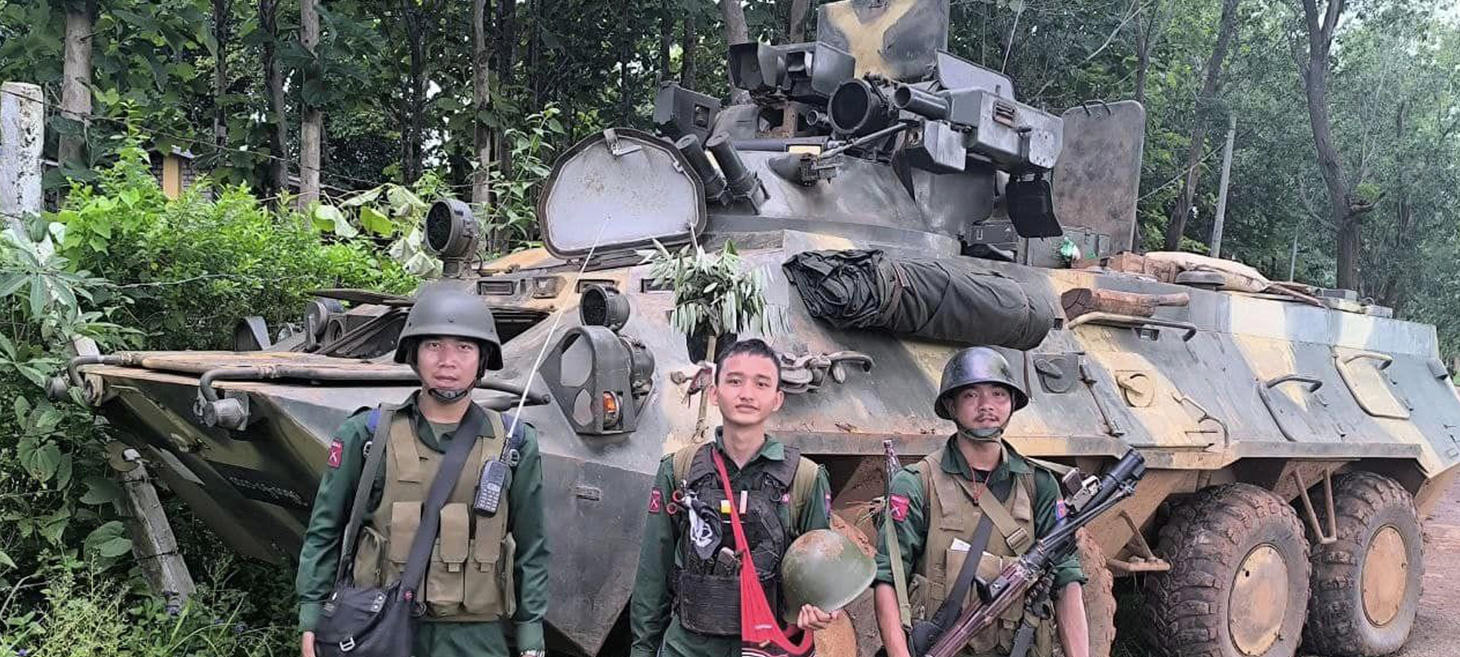
Fighting Continues in Lashio as Myanmar Junta Troops Try to Retake NE Command
Intense clashes erupted in Lashio, the capital of northern Shan State, between Myanmar's junta forces and the ethnic Myanmar National Democratic Alliance Army (MNDAA) alongside allied resistance groups, including the Bamar People's Liberation Army (BPLA), as they sought to consolidate control over the city following the seizure of key military bases and strategic locations, despite regime claims of tactical regrouping. The MNDAA and its allies have taken significant positions, including the North Eastern Command headquarters on July 25, aiming to secure remaining junta bases amidst ongoing battles that have resulted in civilian casualties and trapped injured individuals. Despite the regime's denial of losing control over Lashio, the situation remains volatile, with continued fighting near the command headquarters and in residential areas, hindering rescue efforts. The combined forces have captured several military installations and released prisoners, including political detainees, asserting dominance over key infrastructure. Concurrently, heavy confrontations involving the Ta’ang National Liberation Army (TNLA) and allies against junta troops occurred in Mongmit, Nawnghkio, Kyaukme townships, and Mogoke Township, part of broader efforts by the Brotherhood Alliance, which includes the MNDAA, TNLA, and Arakan Army, under Operation 1027 initiated in October 2023 and resumed in June after ceasefire violations. This operation, aimed at seizing junta bases and strategic locations, underscores the escalating conflict across northern Shan State and Mandalay Region, highlighting the complex dynamics of Myanmar's ongoing struggle against the military regime, with the alliance poised to establish administrative control amidst chaos and continued engagements.
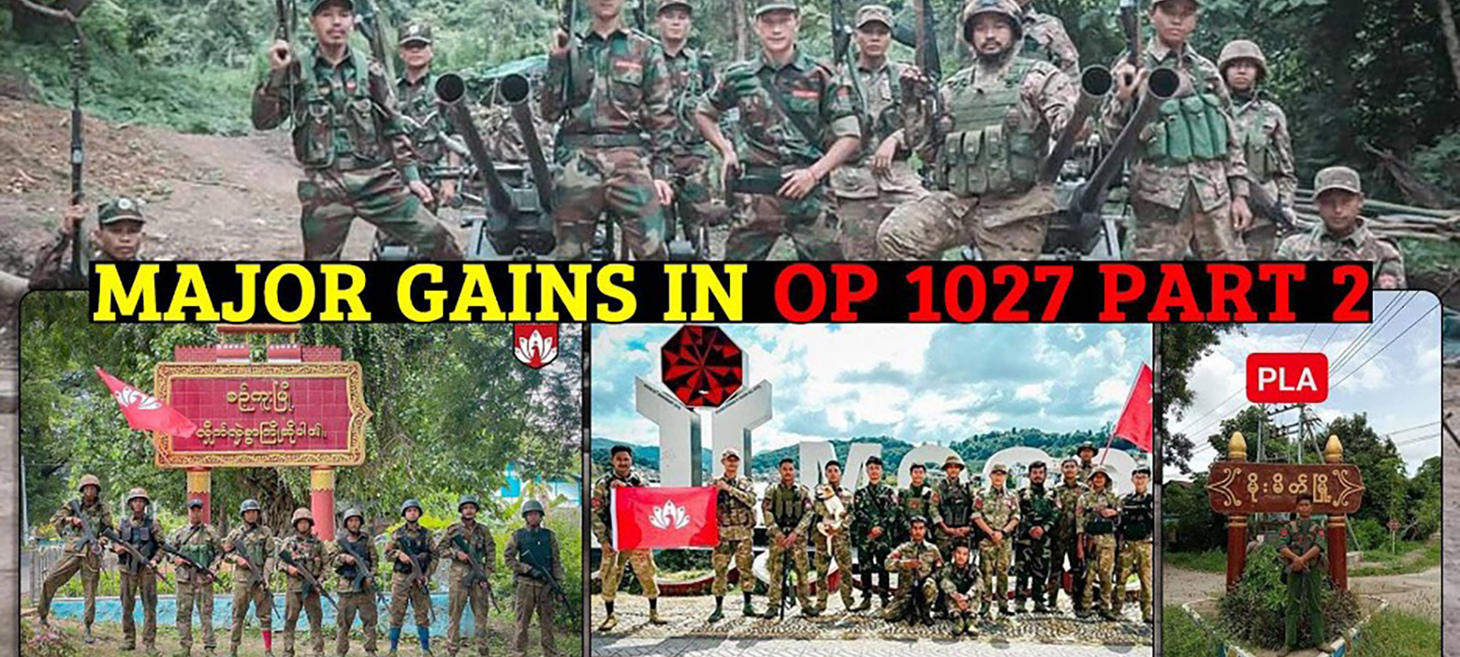
Operation 1027: Major Gains in Phase Two of Myanmar Resistance Offensive
Since resuming Operation 1027 on June 25, the Brotherhood Alliance, comprising the Myanmar Nationalities Democratic Alliance Army (MNDAA), Ta’ang National Liberation Army (TNLA), and allied resistance groups under the civilian National Unity Government (NUG), have inflicted significant defeats on Myanmar's junta, capturing around 100 bases, several military battalions, and at least six towns, including Lashio, the capital of northern Shan State. Notable victories include the strategic towns of Nawnghkio, Kyaukme, and Singu, crucial for their location along the Mandalay-Lashio-Muse Highway and proximity to key military academies and trade routes. The TNLA and allies' control over Nawnghkio and Kyaukme disrupts vital junta supply lines, while the capture of Singu Township marks a significant gain for Mandalay PDF, enhancing their strategic position near Mandalay city. Further successes in Madaya Township threaten Mandalay's security, prompting tightened measures by the junta. The fall of Mogoke, known for its ruby mines, and Mongmit town signifies expanding resistance control despite ongoing clashes. The MNDAA's seizure of nearly all of Lashio, including the North Eastern Command headquarters, represents a pivotal moment, challenging junta authority and marking the first capture of a regional military command center post-coup. These advancements underscore the growing momentum of the armed resistance, disrupting junta operations and highlighting the effectiveness of coordinated assaults across northern Shan State and Mandalay Region, as the alliance seeks to expand territorial control and administrative oversight amidst continued conflict, reflecting the shifting dynamics of power and the escalating challenge to military rule in Myanmar.
Conscription
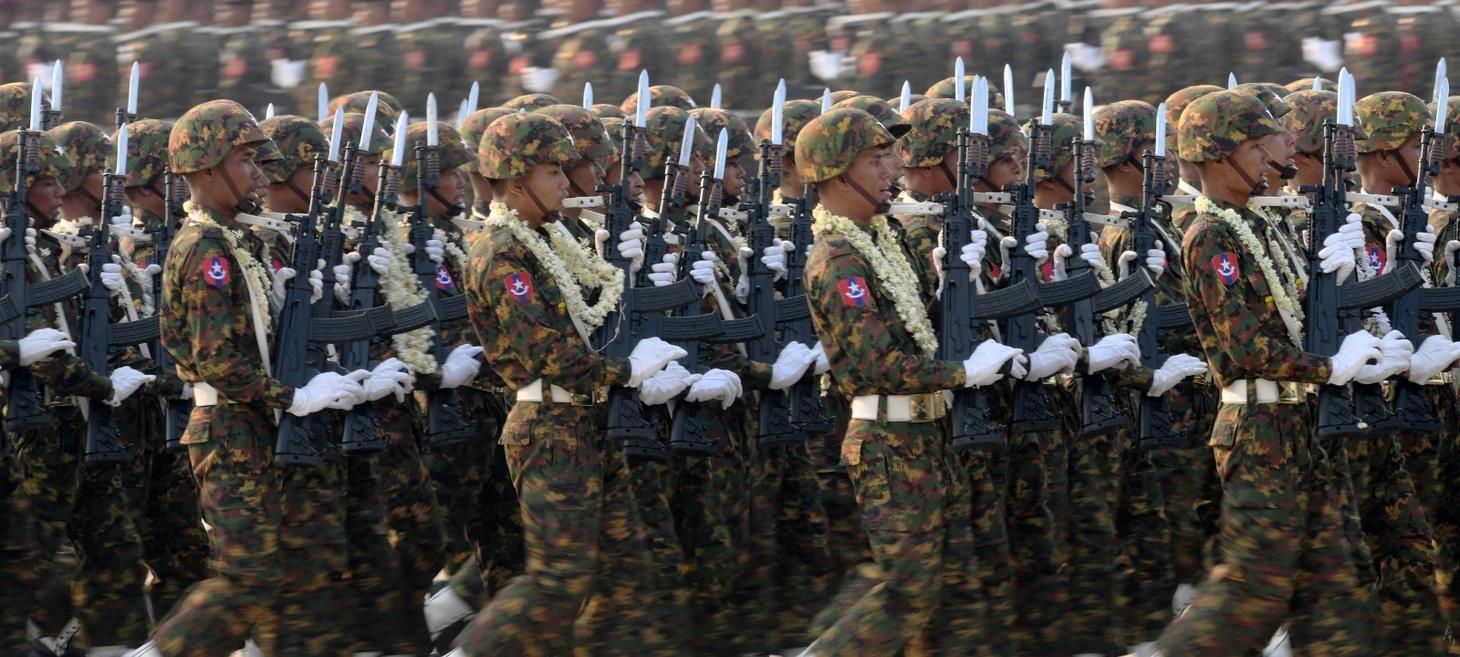
Families of conscripts ‘afraid they could be next’
Families of individuals forcibly conscripted by the Myanmar military are living in a state of constant fear and uncertainty, with limited contact with their loved ones. The situation escalated for Daw Nyo when her son informed her on July 3rd that he had been deployed to Kawkareik in Kayin State, an area frequently attacked by the Karen National Union and allied resistance groups since 2022. Her concerns shifted from his well-being during training to his safety amidst the ongoing conflict, highlighting the dire circumstances faced by families caught in the crossfire of Myanmar's military tensions.
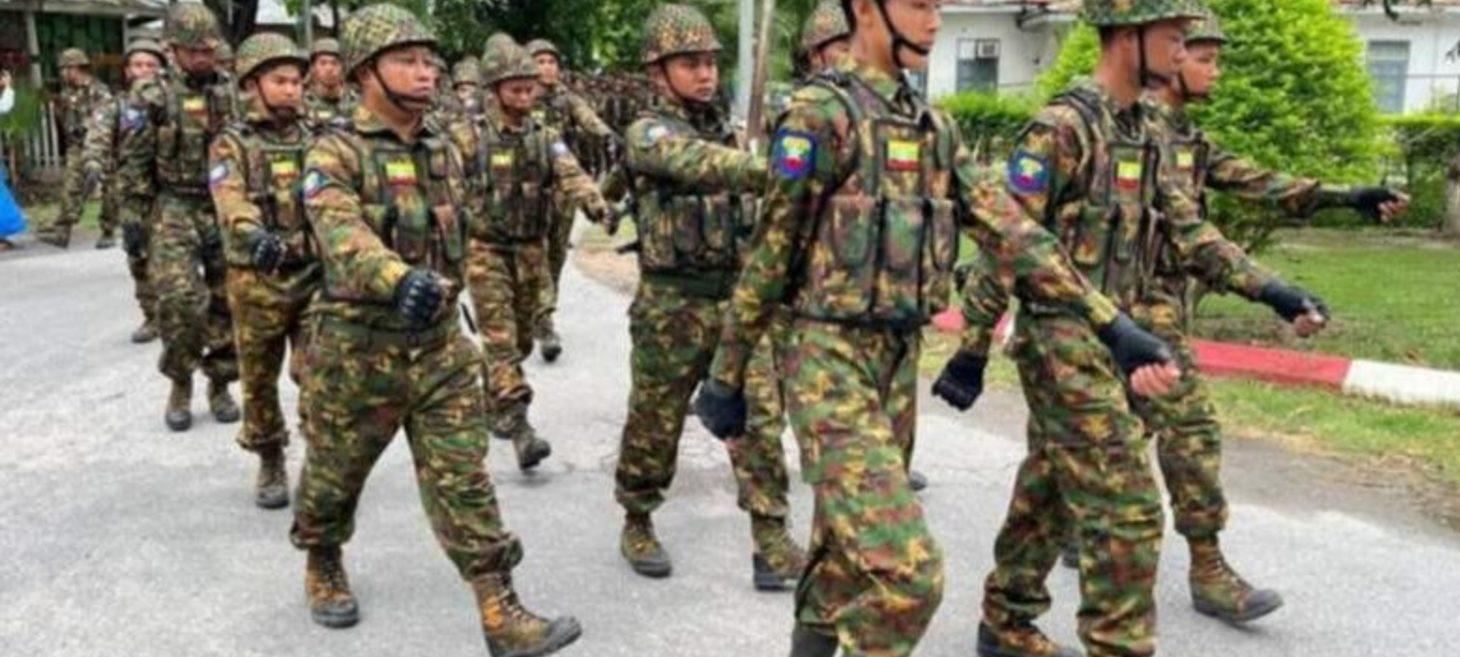
Youths Evade Junta’s Conscription by Joining Karen Border Guard Force
Following the junta's announcement of implementing the conscription law in Myanmar, there has been a significant increase in youth enlistment in the Border Guard Force (BGF), particularly from regions like Karen State and Ayeyarwady. This surge is attributed to the desire to avoid forced recruitment by Bamar soldiers and the appeal of the BGF's non-partisan policy, offering a good salary and the opportunity to serve in guard duties rather than on the frontlines. New recruits undergo military training in designated areas, including the BGF-owned hotel zone near Mount Zwegabin and various BGF battalions. Initially, the BGF declared independence from the junta, aiming to become the Karen National Army (KNA) focused on peacekeeping in Karen State. However, recent events saw the BGF re-align with regime forces amidst heightened tensions, reinforcing security through increased patrols and checkpoints in strategic locations.
Crime & Narcotics
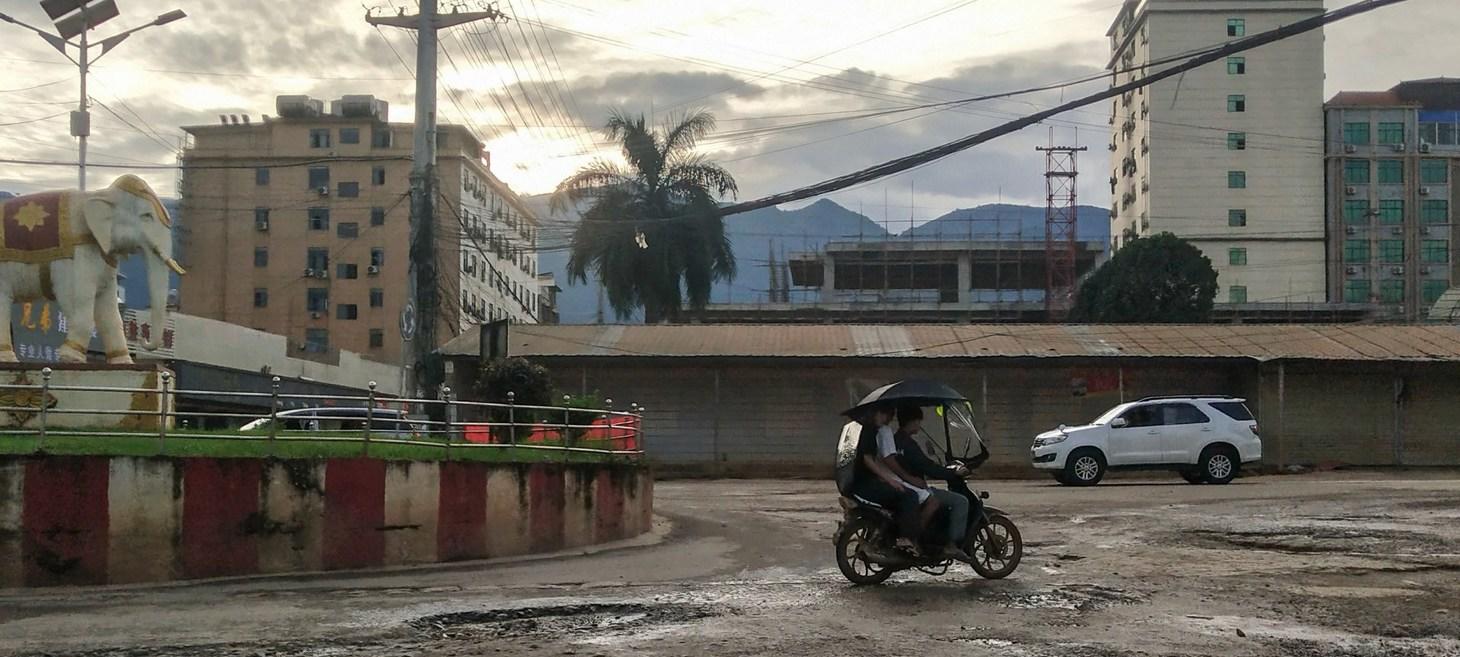
Trapped in Myanmar’s cyber-scam mills
In Laukkai, Myanmar, a major hub for cyber-scamming, individuals like La Awng and Htun were lured into a life of forced labor in the booming cyber-scam industry, which has thrived since the 2021 military coup, exploiting the collapse of rule of law. Trafficked into the city under false pretenses, they were coerced into running online fraud schemes, including the "pig butchering" scam, where victims are manipulated into fake cryptocurrency investments. Held in prison-like conditions and subjected to brutal punishments, these workers faced constant threats and psychological trauma, with some even believing they witnessed killings and were threatened with being locked in cages with wild animals for disobedience. The industry, dominated by Chinese criminal networks, has seen a surge, with hundreds of thousands from over 60 countries forced into servitude, highlighting the dire situation in Myanmar where the military's grip has facilitated such criminal activities. Despite the harsh realities, some, like La Awng, tried to navigate the system to survive, even taking on roles as trainers or translators in the scams, while others, like Brang, managed to escape but live with the trauma of their experiences. The cyber-scamming operations in Laukkai, involving romantic scams and financial fraud, underscore the broader issue of human trafficking and exploitation, exacerbated by the coup and the subsequent economic crisis, where individuals are trapped in a cycle of abuse and deception, showcasing the darker side of Myanmar's descent into lawlessness and the challenges faced by those ensnared in the illicit economy.
Economy

Gold Price Hits Record High in Myanmar as Currency Crisis Devastates Economy
Myanmar's currency, the kyat, has experienced a significant devaluation, losing 13% of its value this month alone, with the exchange rate reaching 5,400 to the US dollar, a stark contrast to pre-coup levels of around 1,300. Concurrently, the price of gold in the domestic market has soared to unprecedented heights, exceeding 6.8 million kyats per tical, driven by ongoing armed conflict, inflation, and a general loss of confidence in the regime. This economic turmoil, exacerbated by the military coup in February 2021, has seen the kyat's value plummet against other currencies, including the Thai baht and Chinese yuan, leading to increased gold prices and commodity costs. Business owners warn of further inflation and currency depreciation as the regime prepares to introduce a new monthly allowance for civil servants, a move expected to necessitate additional money printing and thereby fuel inflation. Amidst these challenges, the regime has attempted to exert control over gold pricing, threatening legal action against dealers not adhering to state-set rates, highlighting the deepening economic crisis and regulatory uncertainties facing Myanmar.

Natural gas supplies plummet in Myanmar amid import limits - Radio Free Asia
Since the February 2021 coup in Myanmar, the price of liquid petroleum gas (LPG), commonly used for cooking, has skyrocketed due to supply shortages and monopolistic control over imports by the military junta, forcing some families to resort to charcoal. The cost of LPG, critical for homes and restaurants amid frequent electricity outages, has tripled, with prices ranging from 12,000 to 20,000 kyat per "viss" container, significantly higher than last year's 3,700 to 4,000 kyat. This increase is attributed to port monopolies and limited import licenses issued exclusively to those close to the military, creating a near monopoly and leading to shortages. Gas sellers attribute the rising prices to monopolization and restricted import licenses, suggesting that removing these barriers could reduce costs by up to 40%. Despite varying prices across the country, the overall trend shows a substantial increase, exacerbating living expenses for residents like Ko Daung in Yangon, who now faces difficulties even finding gas to purchase, let alone afford it. The situation is worsened by smuggling disruptions due to floods in border states, highlighting the economic strain on everyday life under the current regime. The government's control over LPG imports and the absence of a uniform pricing system reflect broader economic challenges, as the junta's policies exacerbate the scarcity, impacting accessibility and affordability of this essential commodity.
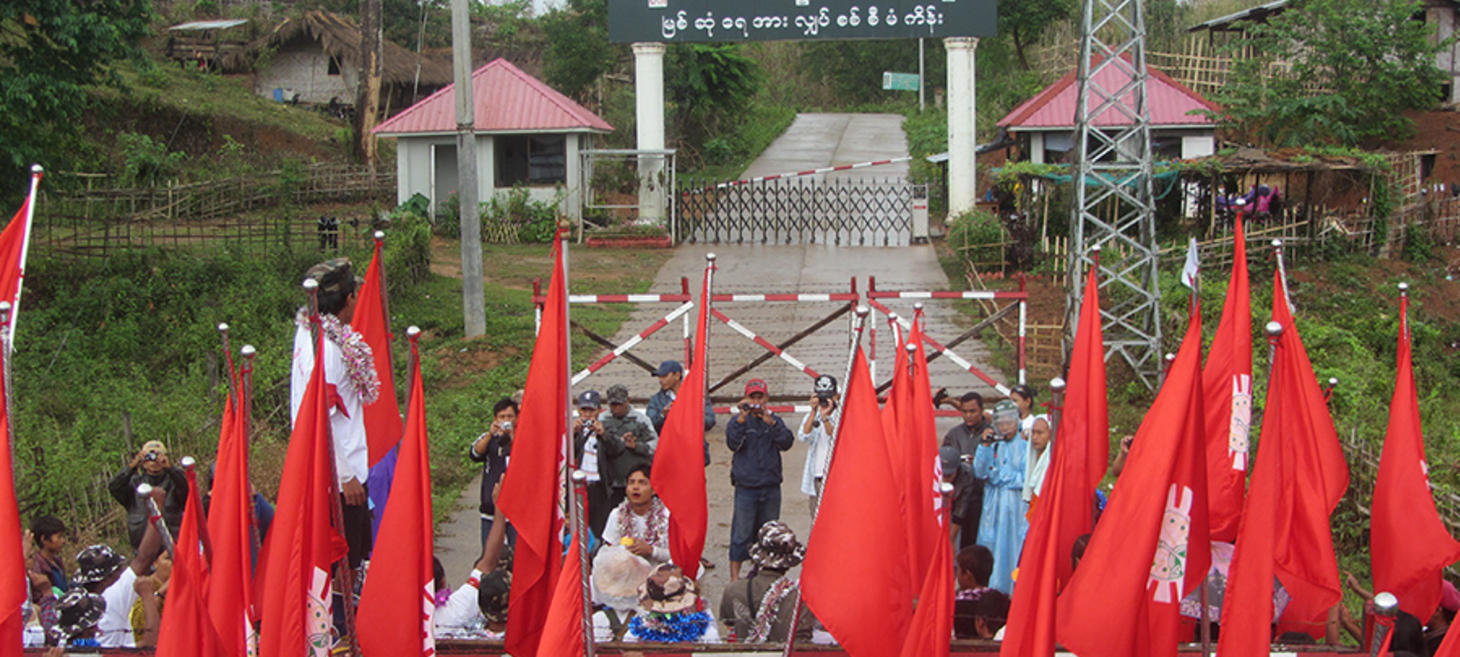
In China, Myanmar Junta Minister Visits Firm Planning Controversial Irrawaddy River Dam
Myanmar's junta Foreign Minister Than Swe recently visited China, meeting with the chairman of State Power Investment Corporation Yunnan International Power Investment Co. Ltd. (SPICYN), the developer behind the controversial Myitsone Dam project in Kachin State, amidst the junta's efforts to evaluate and potentially revive hydropower projects on the Irrawaddy River. This move comes as the Kachin Independence Army and allies advance in the region, and follows the formation of a body to research and develop solutions for these projects, raising concerns about the possible resumption of the stalled $7.2-billion Myitsone Dam, which was halted in 2011 due to public outcry over environmental, economic, and transparency issues. The project, part of a larger plan for seven dams with a total capacity of 20,000 megawatts, has been a point of contention, with fears that most power would be exported to China and concerns over its impact on the Irrawaddy River's ecosystem and local livelihoods. Political observers suggest the junta may be leaning towards restarting the project to secure Chinese support against anti-regime forces, despite ongoing protests and the project's history of controversy, including its location near a seismic fault line and the lack of public consultation. Than Swe's visit and discussions with Chinese officials highlight the junta's interest in addressing Myanmar's power shortages, which have worsened since the 2021 coup, by potentially implementing suspended mega-projects like Myitsone, indicating a strategic alignment with China's interests, despite continued local opposition and the project's complex implications for the environment and communities downstream.
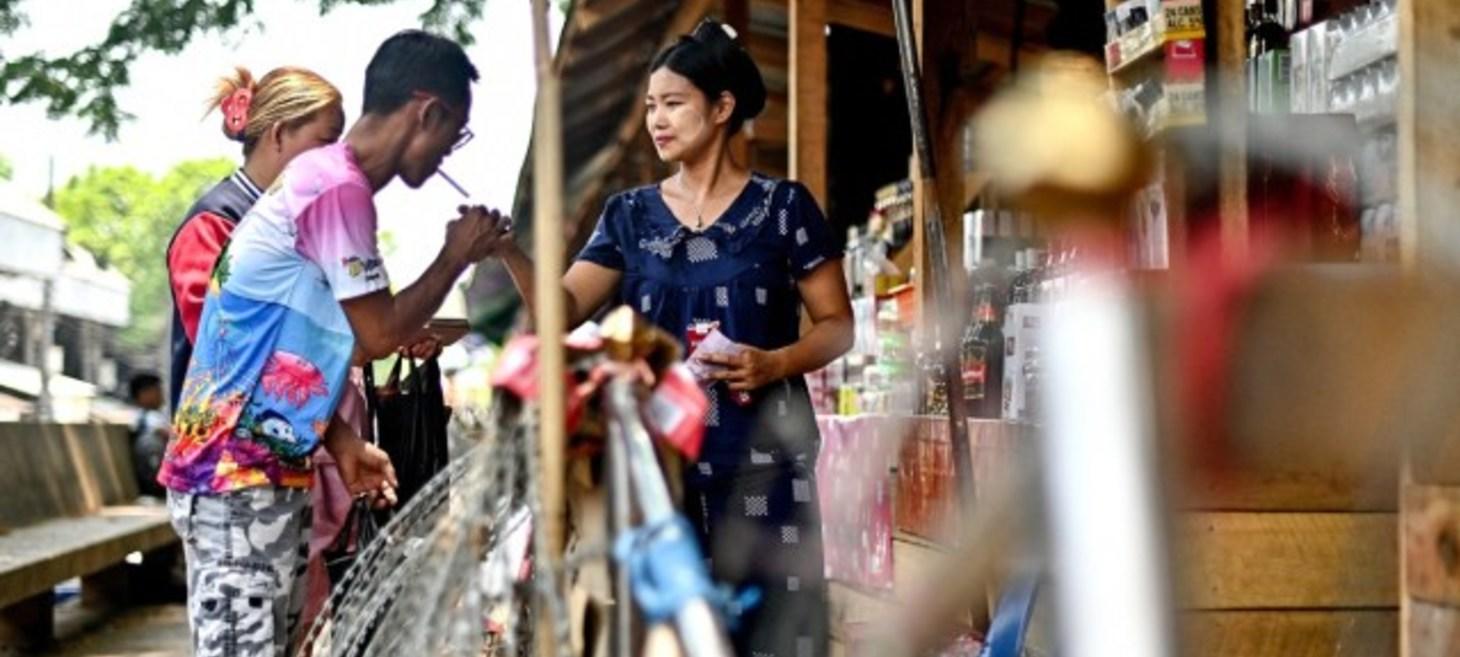
Myanmar’s Economy Deeper in the Mire - fulcrum.sg
The State Administration Council (SAC) of Myanmar, amidst ongoing conflicts and a deteriorating humanitarian situation, continues to enforce coercive economic policies that prioritize junta interests, exacerbating the country's economic challenges. The World Bank forecasts only a 1% GDP growth through March 2025, with economic output remaining 9% below pre-COVID-19 levels, highlighting a significant economic downturn. The SAC's control over border-trade crossings has weakened, impacting trade but also providing opportunities for resistance groups. The kyat's depreciation and manipulative foreign exchange policies have generated substantial revenue for the regime but at a high cost to the national economy. Additionally, the SAC's militarization of economic positions and crackdowns on various economic actors have led to market disruptions, scarcity, and soaring prices. Restrictions on telecommunications have further hampered business operations, while attempts to engage in barter trade and de-dollarize cross-border transactions have shown limited success. Large infrastructure projects like the Dawei port and Myitsone Dam face uncertain futures due to ongoing conflicts and geopolitical tensions, particularly with China, whose economic interests are threatened by the instability. Overall, Myanmar's economic outlook remains bleak under the SAC's rule, with systemic issues and international isolation deepening the crisis.
Ethnic Issues

Former KNU Vice President Padoh Naw Zipporah Sein Passes Away
Padoh Naw Zipporah Sein, daughter of General Saw Tamla Baw and a key figure in the Karen revolutionary movement, made significant contributions to the Karen National Union (KNU) and the broader struggle for democracy in Myanmar. Serving as the secretary general of the Karen Women's Organization (KWO) from 2000 to 2008 and later as the KNU's secretary general, she played a pivotal role in establishing the Women's League of Burma (WLB) and was elected vice president at the 15th KNU Congress. Her leadership was instrumental in achieving a ceasefire agreement in 2012, marking a significant step towards peace. Engaging in discussions with prominent figures like Daw Aung San Suu Kyi and U Khun Htun Oo, she advocated for peace, federalism, and democracy, and actively engaged with Karen communities to explain the peace process and address their concerns. Her death has prompted widespread mourning within the Karen community and beyond, highlighting her impact on the movement and her efforts to foster dialogue and understanding among various stakeholders, including her work with the 88 Generation Students. Her legacy is marked by her dedication to women's affairs, education, and the pursuit of a democratic Myanmar, underscoring her role in shaping the country's path towards peace and federalism through negotiation and community engagement.
Foreign Affairs

Security chiefs arrive in Myanmar for regional talks - newagebd.net
National security chiefs from six South and Southeast Asian countries, part of the Bay of Bengal Initiative for Multi-Sectoral Technical and Economic Cooperation (BIMSTEC), have convened in Myanmar for regional discussions. This rare visit to the isolated junta includes representatives from Bangladesh, Bhutan, India, Nepal, Thailand, and Sri Lanka. The talks, led by Myanmar's junta chief Min Aung Hlaing, are set to address issues such as peace and stability, drug eradication, counterterrorism, and anti-human trafficking efforts. This meeting occurs amidst Myanmar's ongoing turmoil since the 2021 military coup, which has seen significant internal conflict and accusations of severe human rights abuses by the military. The junta's international isolation is also highlighted by the lack of Western diplomatic presence and ASEAN's restrictions on the junta's participation in high-level meetings, underscoring the complex geopolitical and humanitarian landscape in which these talks are taking place.
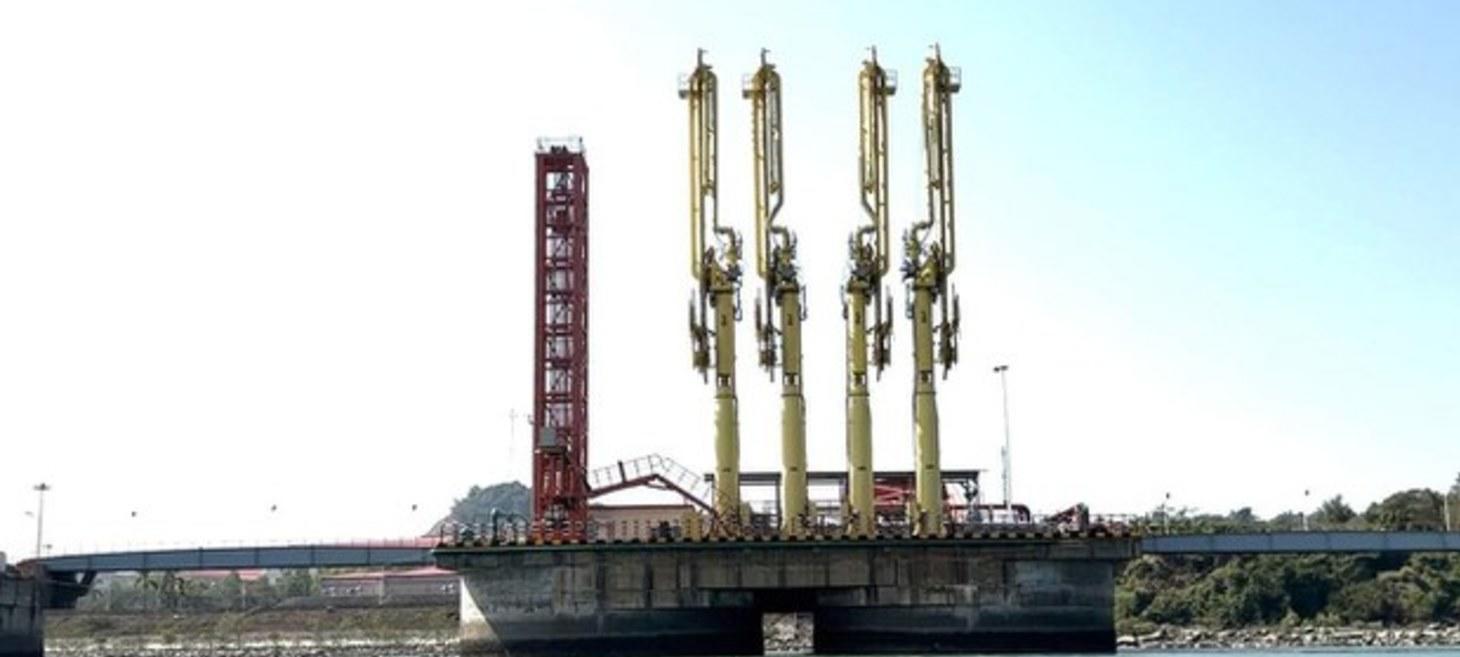
Myanmar rebel group vows to protect China’s interests
The Myanmar National Democratic Alliance Army (MNDAA), part of a rebel alliance opposing Myanmar's military rule, has committed to safeguarding Chinese interests in northern Myanmar amid escalating conflicts. This pledge comes as the MNDAA intensifies its fight for control over Lashio, a key town in Shan state, following the collapse of several China-mediated ceasefires since January. Despite junta officials denying MNDAA's claim of capturing most of Lashio, including a regional military headquarters, the group has vowed to protect Chinese nationals and investments. Political analysts suggest this move may be in response to China's cautionary stance, emphasizing the importance of maintaining stability and protecting its economic interests in the region.
General News

Is Myanmar a dystopian nightmare?
Myanmar's current situation, marked by the 2021 military coup and subsequent authoritarian rule, draws eerie parallels to George Orwell's dystopian novel "1984," with the junta imposing strict controls on information, fostering nationalism, and employing surveillance reminiscent of Big Brother's regime. Orwell's experiences in colonial Burma influenced his critique of authoritarianism, highlighting the nation's struggle against oppression, a theme echoed in the military's crackdown on dissent and manipulation of ethnic tensions akin to Oceania's dystopia. Despite these similarities, Myanmar differs significantly, facing internal divisions, cultural resilience, and international scrutiny. Unlike Orwell's fictional world, Myanmar's resistance movements challenge the junta's authority, showcasing a complex interplay between historical legacies, ongoing conflicts, and the Rohingya crisis, underscoring the importance of acknowledging unique contexts and the potential for change through democratic aspirations and global engagement.
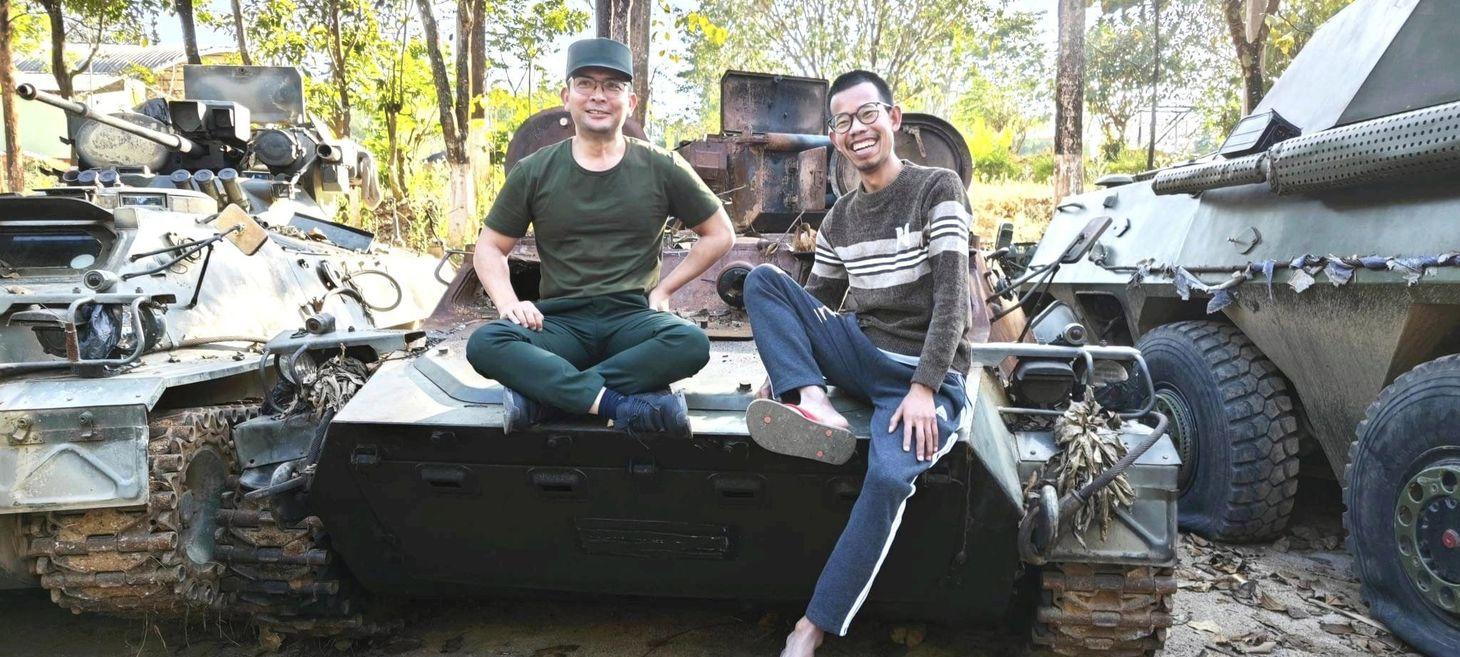
Anti-Coup Icon on the Future of Myanmar’s Spring Revolution as Junta Crumbles
Dr. Tayzar San, a prominent figure in Myanmar's resistance against the military junta, emphasizes the strategic importance of Mandalay in the ongoing conflict and the necessity of a coordinated effort between political, military, and people's movements to overthrow the dictatorship. He discusses the progress of Operation 1027, highlighting the military's loss of control over major cities and the advancement of revolutionary forces towards Mandalay, which is seen as a crucial center for the junta's military and economic strategy. San advocates for an interim political agenda for Mandalay Region, stressing the importance of unity among revolutionary forces and the drafting of plans for a federal movement to support the revolution. He addresses the challenges of administering newly controlled territories, emphasizing the need for the National Unity Government (NUG) to improve its organizations and adhere to ethical standards to maintain public support. San also touches on the historical context of Myanmar's political issues, suggesting that resolving conflicts between ethnic armed groups and local communities is essential for achieving a peaceful, federal union post-revolution. He criticizes the junta's planned election as a sham designed to prolong military rule, urging China to cease support for the dictatorship for the sake of regional stability. San's message to the public underscores the importance of balancing military efforts with people's movements and uprisings, calling on citizens to actively participate in the revolution to ensure its success and highlighting the role of community-wide actions in achieving the goal of a federal democratic union.
Humanitarian
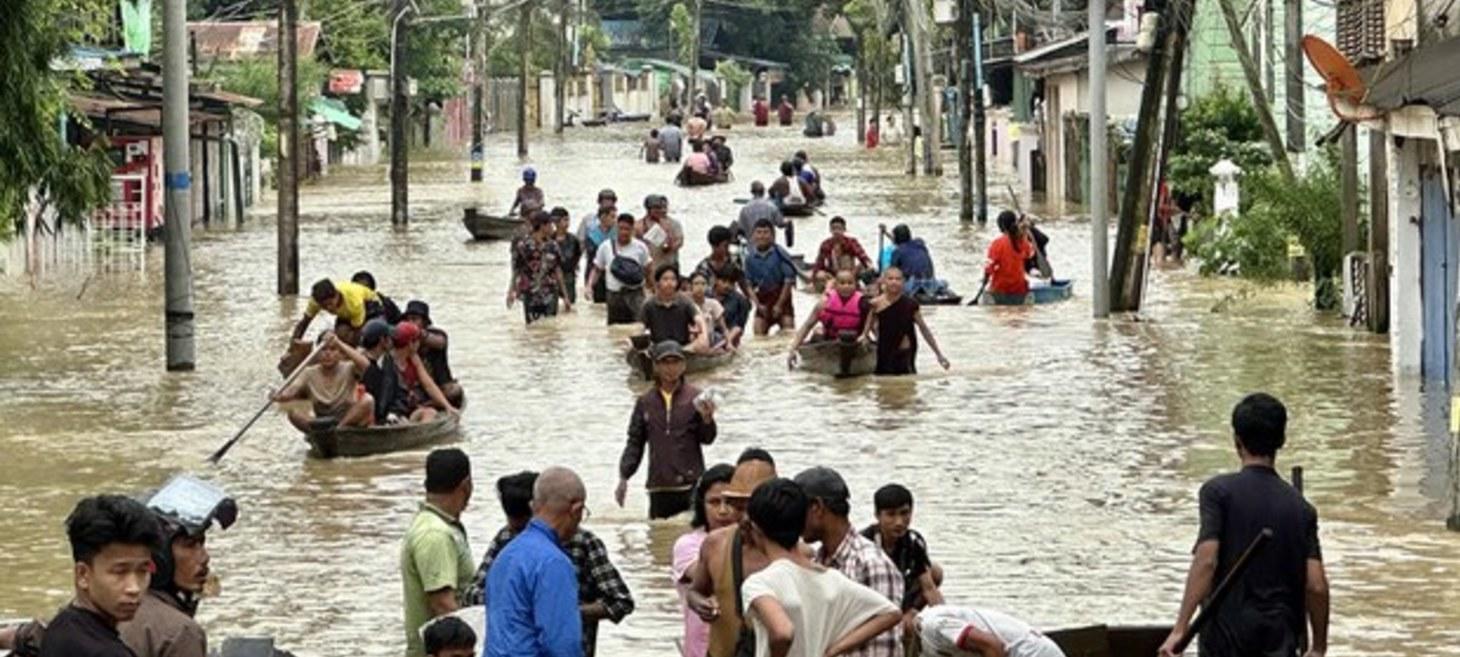
Floods force 20,000 people from homes in Myanmar’s Bago - Radio Free Asia
Torrential rains have caused severe flooding in Bago, Myanmar, displacing approximately 20,000 people and leading to critical shortages of water and food, exacerbated by the ongoing economic crisis following the 2021 military coup. The floods, which have affected areas around Buddhist temples and residential neighborhoods, resulted in at least one child's death due to drowning. Amidst the political turmoil, residents face heightened hardships, with the situation worsening due to continuous rainfall. Aid groups report urgent needs for clean water and food among evacuees, as floodwaters rise, affecting neighborhoods severely and forcing repeated evacuations. Despite the opening of relief camps by military authorities, the flooding continues to escalate, with meteorological warnings indicating further water level increases and widespread impacts across central Myanmar, including fatalities in Myawaddy township near Thailand and displacement in Kachin state. The crisis underscores the challenges faced by communities already struggling amidst political instability and economic hardship, highlighting the urgent need for assistance and the broader implications of environmental disasters in conflict-affected regions.
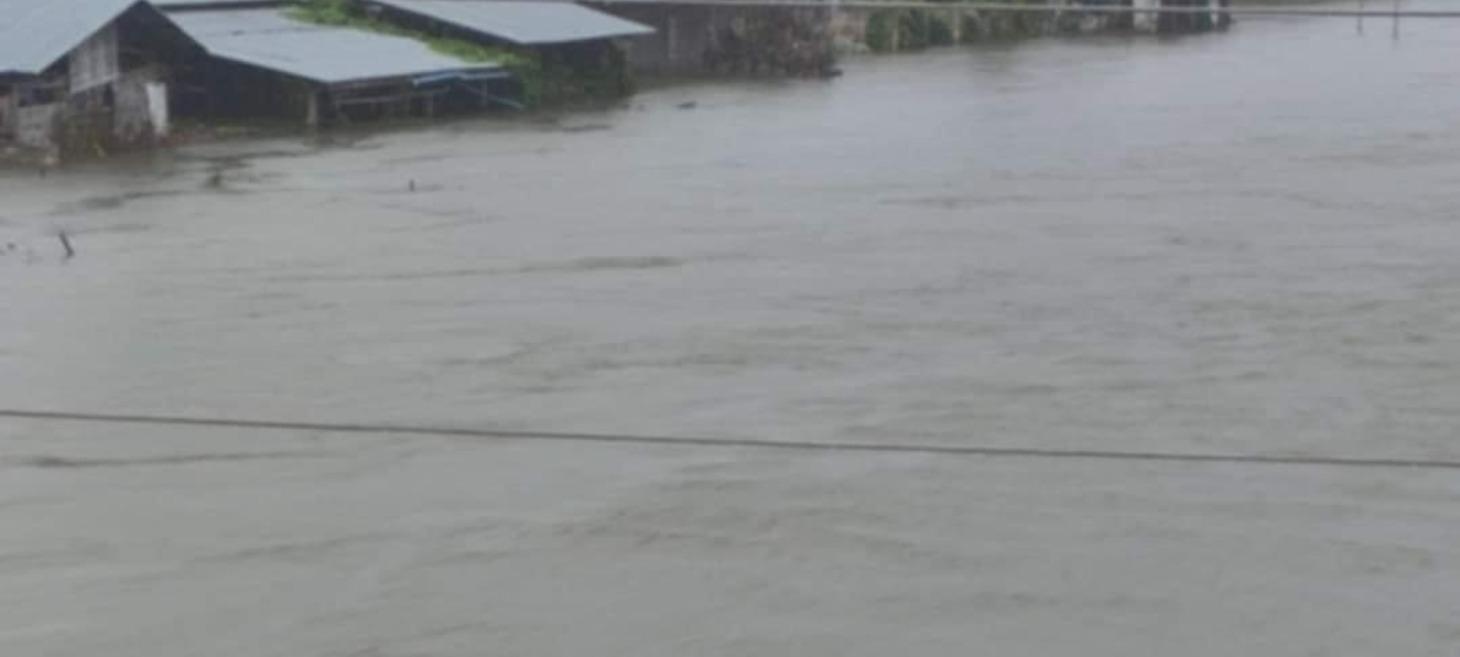
Over a Thousand Residents Affected by Flash Floods Following Junta’s Sudden Water Release from Mongpai Dam
In a reckless act, the junta's 422nd Light Infantry Battalion stationed in Mongpai (Mobye) in southern Shan State opened the Mongpai Dam, causing severe flooding that has affected over 1,000 residents and destroyed over 1,000 acres of rice fields along the Belu Riverbank. The sudden release of water inundated paddy fields and posed a high risk of flooding to villages such as Mobyeinn, Hparlaiinn, Hpaungtaw, and Hpayarhpyu. The Karenni State Interim Executive Council (IEC) accused the junta of deliberately causing hardships for local farmers and residents. Currently, low-lying areas and houses along the Belu Riverbank are flooded, displacing more than 1,000 people. The IEC has also warned residents of Loikaw and nearby areas to stay vigilant as water levels may continue to rise for three days after July 25.
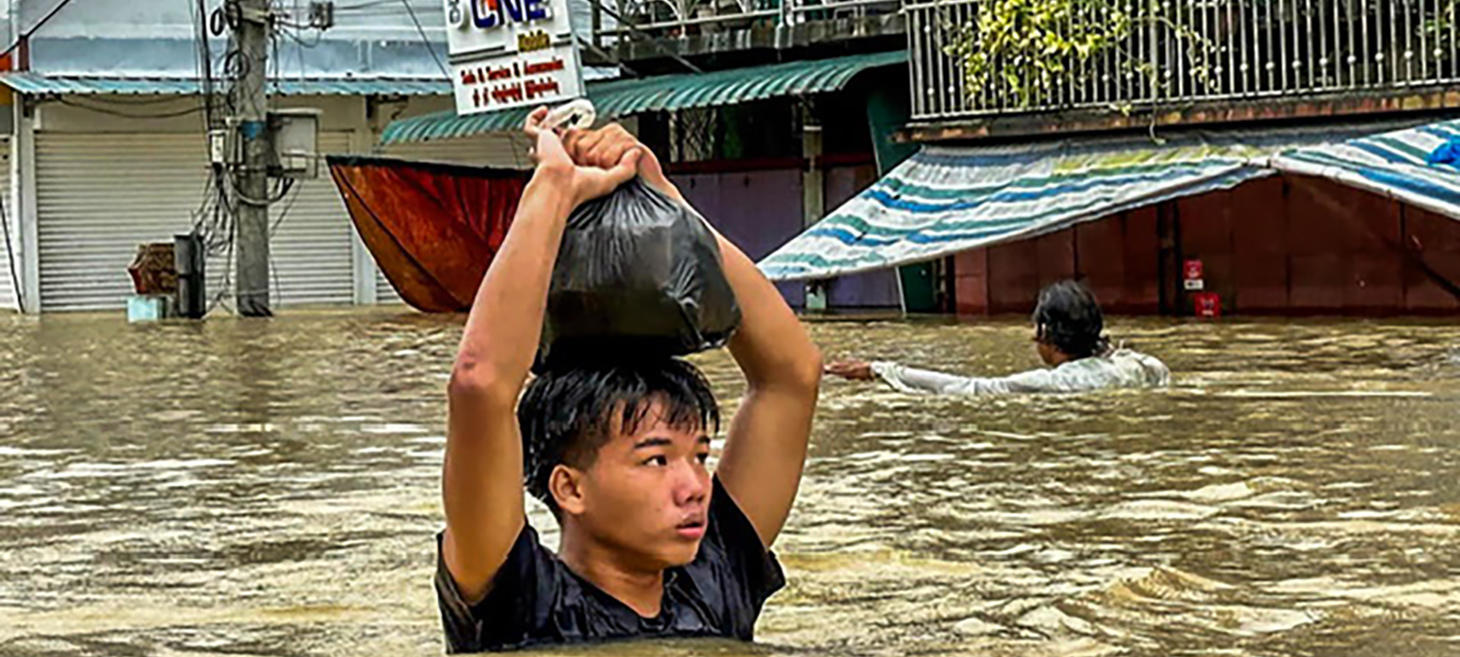
Lower Myanmar Suffers Heavy Flooding
Hpa-an, the capital of Karen State, is experiencing severe flooding due to the Salween River reaching record levels, over 193cm above its critical mark, displacing around 8,000 residents to 15 camps amid ongoing heavy rains. Compared to 2018's flood peak of 918cm, Tuesday saw the river rise to 943cm, marking a significant escalation. The situation worsened across Myanmar, affecting areas including Mandalay, Magwe, Bago, Ayeyarwady, Tanintharyi regions, and Karen and Mon states, with Myawaddy town severely impacted, displacing nearly 3,000 residents and causing three civilian deaths. Flooding began last Thursday, closing the Thai-Myanmar Friendship Bridge due to poor drainage and impacting transport links across Karen, Mon states, and Bago, Ayeyarwady regions. Despite reduced rainfall, waters remain high, contrasting with the brief 2018 event. The junta warned of continued flooding in several regions through Wednesday, highlighting infrastructure vulnerabilities. Flooding spread, affecting lower areas and prompting warnings for further inundation in Ayeyarwady Region and Bago Region, exacerbated by blocked drainage systems. Earlier, the Irrawaddy River displaced thousands in Kachin State, with the Salween River's rise surpassing critical levels, highlighting the ongoing crisis across Myanmar, including fatalities in Myawaddy and disruptions in transportation.
Military
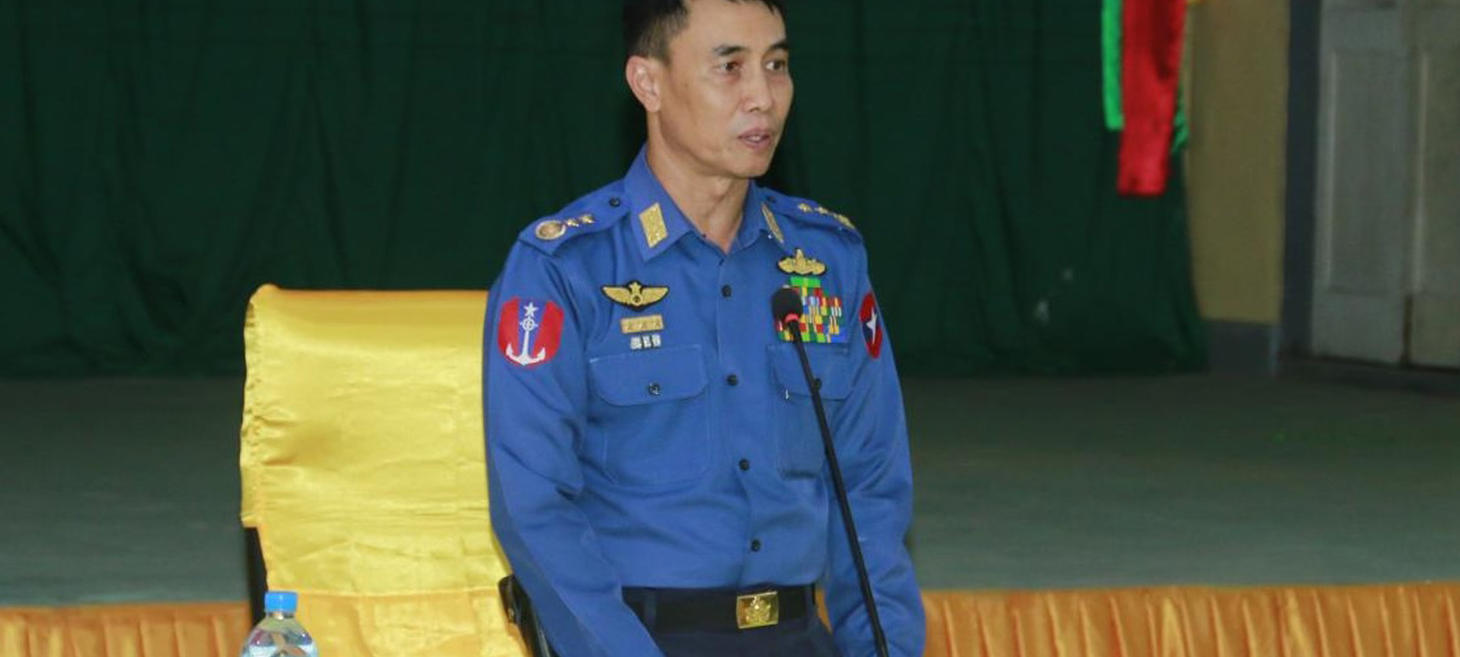
Myanmar Junta Arrests Ex-Navy Chief for Disobeying Orders - The Irrawaddy
Junta leader Min Aung Hlaing has arrested former Navy chief Admiral Zwe Win Myint for disobeying orders during the conflict in Rakhine State. Zwe Win Myint resigned after refusing to attack Arakan Army (AA) troops stationed in hotels on Ngapali Beach without using artillery, as ordered by Min Aung Hlaing, who feared artillery would damage the hotels owned by Myanmar's elite. Despite proposing artillery use to suppress the enemy before landing troops, Zwe Win Myint's suggestion was rejected, leading to his arrest on July 8 and replacement by Vice-Admiral Htein Win. This incident highlights the junta's internal conflicts and the strategic importance of Ngapali Beach, where luxury resorts owned by regime cronies are located.
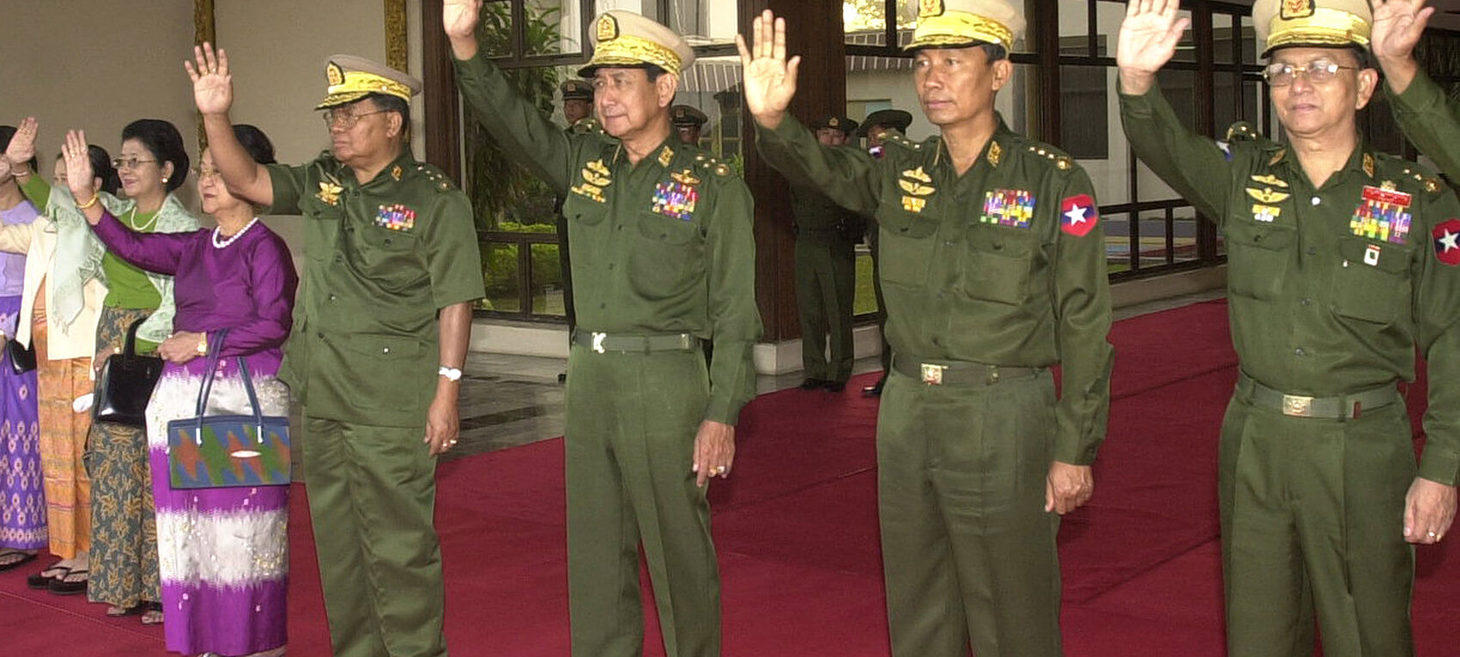
Myanmar Junta Puts Leaders of Old Regime Under Surveillance
Myanmar’s military regime has placed former senior military leaders, including ex-dictator Than Shwe and former President Thein Sein, under surveillance, as directed by current junta leader Min Aung Hlaing. This monitoring extends to members of their households and other key figures from the previous regime, such as Maung Aye and Thura Shwe Mann. The surveillance began shortly after Thein Sein's trip to China in late June, where he reportedly discussed with Chinese officials the possibility of persuading Min Aung Hlaing to hand over power and form an interim government. This visit has fueled speculation and rumors of a potential countercoup, leading to increased paranoia and distrust within the current regime. The new security measures were implemented just before Min Aung Hlaing controversially declared himself Myanmar’s acting president, a move criticized as unconstitutional and met with public and military discontent. This situation echoes past actions, such as Than Shwe's 2002 house arrest of former dictator Ne Win and his family on coup charges.
Politics
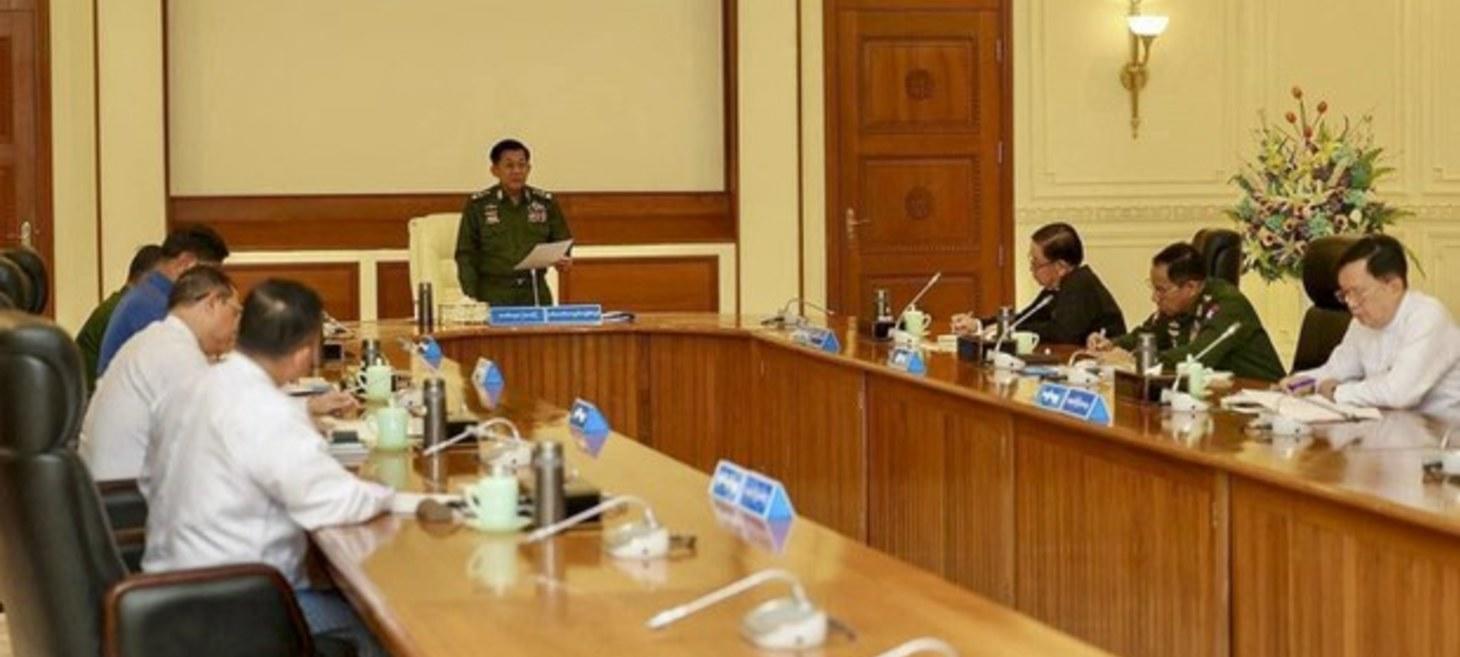
Myanmar’s junta extends state of emergency for yet another six months
Myanmar's military junta has once again extended the state of emergency for an additional six months, marking the sixth such extension since the overthrow of the civilian government in 2021. This decision, unanimously supported by the National Defense and Security Council, delays the junta's plans for national elections until next year, despite constitutional requirements for elections within six months post-emergency. The extension grants the military expanded powers amidst ongoing conflicts with resistance forces. Justifying the move, state media cited the need to restore peace and stability in the face of "terrorist activities." The extension was signed by Senior General Min Aung Hlaing, now acting president following his predecessor's medical leave, who has led the junta since the coup. International criticism, notably from the U.S., condemns the extension as contrary to the people's aspirations for democracy and calls for an end to violence and the release of detainees. Amidst political turmoil, the economy suffers significantly, with the kyat's value hitting a record low against the U.S. dollar, leading to soaring commodity prices and a sharp increase in gold prices, indicative of broader economic instability under the junta's rule.

Anti-dictatorship Groups Are Embracing Militarization Rather Than Good Governance
The recent successes of armed groups, notably the Three Brotherhood Alliance (3BHA) and its affiliates, against the Myanmar military in Operation 1027 exhibit signs of emerging military regimes and local warlordism, raising concerns about Myanmar potentially fracturing into autonomous states. However, Dr. Morten B. Pedersen suggests that fears of fragmentation might be overstated, given the historical context of these groups' long-standing resistance against the military and their reliance on public support for their significant gains. Their legitimacy hinges not just on military prowess but on governance and adherence to democratic principles, akin to how the United States was founded. To ensure a transition towards a genuine federal democracy, these groups must focus on the populace's needs, engage in political dialogue, draft a new constitution, and empower citizens, avoiding the authoritarian tactics of the ousted regime. This approach is crucial for maintaining public trust and achieving national unity and stability, contrasting with the oppressive methods of the former junta. Emphasizing inclusivity and negotiation over coercion, these groups can steer Myanmar towards a future grounded in democratic values, addressing the complexities of transitioning from conflict to cohesive governance.
Telecommunications
Northern Myanmar cut off by state-wide communications blackout - Radio Free Asia
Kachin state in Northern Myanmar has been experiencing a communications blackout for ten days, isolating its population and raising concerns among residents who spoke to Radio Free Asia. This shutdown, affecting all 18 townships since July 21st, comes without a clear reason from the military junta, despite ongoing conflicts between the military and anti-junta insurgents. Junta officials have previously cut telecommunications during security crises, leaving victims isolated. However, residents fleeing Kachin state reported no specific incident warranting such a widespread blackout. The junta has remained silent on the matter, with Myo Swe, director of the junta’s Ministry of Transport and Communications, blaming telecom operators without explaining the cause. Families are increasingly worried about being disconnected from their loved ones, with one woman in Yangon unable to contact her family in Myitkyina. Telecom operators MPT and ATOM, affiliated with the junta, are reportedly working to restore services but have not disclosed the blackout's reason. Since the coup, the junta has imposed stricter measures to suppress dissent, including banning VPNs and reducing broadband speeds nationwide. As of July 22nd, internet access has been cut off in 249 areas across Myanmar due to military actions, with Sagaing region being the most affected, followed by Kachin and Chin states.